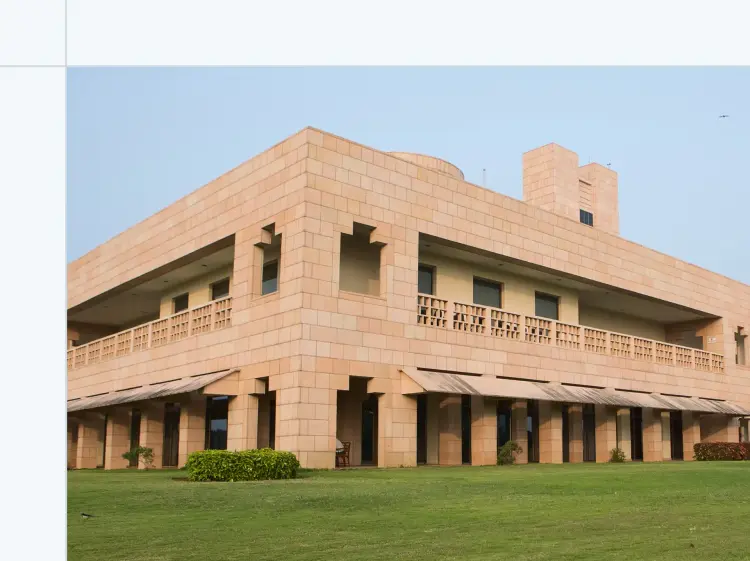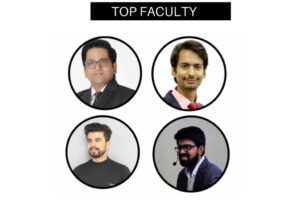
ISB Essays 2025-26: Complete Guide & Expert Analysis for PGP Admissions – M7 MBA Admissions Consultants
Introduction
The Indian School of Business (ISB) Post Graduate Programme in Management remains one of India’s most competitive MBA programs, with only a 22.1% acceptance rate. For the 2025-26 admissions cycle, ISB has introduced significant changes to their essay requirements that every serious applicant must understand.
Key Statistics:
- 2 Mandatory Essays (400 words each)
- 1 Optional Essay (250 words)
- 24+ months work experience required
- GMAT/GRE scores valid for 5 years
What Has Changed in ISB Essays 2025-26
Major Updates for This Cycle
- Goals Essay Now Optional The most significant change is that ISB has made the traditional “Goals Essay” optional (Essay 3). This allows the admissions committee to focus more on personal development and intellectual curiosity in the mandatory essays.
- Introduction of PGP YL Program ISB launched the Post Graduate Programme for Young Leaders (PGP YL) for candidates with 0-2 years of experience, streamlining the previous deferred entry process.
- Enhanced Self-Reflection Focus The mandatory essays now emphasize personal journey and intellectual experiences rather than purely professional achievements.
- Streamlined Application Process ISB has implemented a more structured verification process with clear timelines and requirements for document submission.
Strategic Implications
Even though Essay 3 is optional, outstanding candidates should complete it. ISB expects you to demonstrate school-specific research and fit, not just general MBA motivation. Skipping this essay may signal lack of genuine interest in ISB specifically.
What ISB Expects from Candidates
ISB seeks candidates who embody three core characteristics that translate to both academic success and post-MBA career achievement:
1. Analytical Thinking
ISB looks for individuals who can identify pressing business and societal problems, think critically, and design creative, holistic responses. This should be evident in:
- Academic capacity and achievements
- Professional work and problem-solving approach
- Career aspirations and impact goals
- Quantitative and qualitative analysis skills
2. Demonstrated Leadership Potential
The admissions committee seeks empathetic, effective communicators who can inspire and motivate others. Evidence includes:
- Professional leadership experiences
- Interpersonal skills and team collaboration
- Contributions outside work or school
- Influence without formal authority
3. Commitment to Growth
ISB values candidates who are curious, seek broader perspectives, and learn from failures. This is demonstrated through:
- Response to setbacks and challenges
- Self-initiated learning and development
- Professional growth trajectory
- Community engagement and contribution
Critical Requirement: ISB requires minimum 24 months of full-time work experience before enrollment. This is non-negotiable for the PGP program.
ISB Essay Topics 2025-26: Deep Expert Analysis
Essay 1: Personal Journey & Self-Awareness (400 words)
Prompt: “Contemplate situations that have shaped your personal journey. Present what these situations have taught you about your strengths and weaknesses, and how they have shaped your personal and professional journey.”
What ISB is Really Asking
This essay tests your self-awareness and emotional maturity. ISB wants to see if you have a balanced understanding of yourself and can connect life experiences to professional development. It’s your opportunity to showcase growth mindset and learning from experiences.
Expert Strategy
- Structure: Start with 2-3 positive qualities backed by specific examples
- Balance: Address 1-2 weaknesses honestly, showing growth
- Focus: Emphasize learning and development over achievements
- Connection: Link experiences to leadership style and decision-making
Key Elements to Include
- Formative experiences from different life stages
- Specific examples demonstrating character strengths
- Honest reflection on weaknesses and how you’ve grown
- Clear connection to professional development
- Evidence of emotional intelligence and self-awareness
Common Mistakes to Avoid
- Generic character traits without concrete proof
- Overemphasis on achievements vs. learning process
- Superficial weaknesses (“I’m a perfectionist”)
- Lack of business school relevance
- Poor structure jumping between timeframes randomly
Pro Tips
- Use the STAR method (Situation, Task, Action, Result) for examples
- Show progression and growth over time
- Connect personal qualities to ISB’s three core characteristics
- Demonstrate cultural awareness if you have diverse experiences
Essay 2: Intellectual Development & MBA Motivation (400 words)
Prompt: “What intellectual experiences have influenced your approach to learning and have led you to pursue an MBA? Please describe using anecdotes from your own experiences.”
What ISB is Really Asking
This is essentially the “Why MBA” essay with an intellectual twist. ISB wants to understand your learning style, intellectual curiosity, and the specific experiences that created knowledge gaps an MBA would fill.
Expert Strategy
Structure around three pillars:
- Past experiences showing intellectual growth and curiosity
- Current limitations or knowledge gaps you’ve identified
- How MBA specifically bridges these gaps for your goals
Key Elements to Include
- Specific intellectual challenges you’ve encountered
- Learning from failures or complex problems
- Curiosity-driven initiatives or self-directed projects
- Clear skill/knowledge gaps that MBA education will address
- Evidence of continuous learning mindset
Winning Formula
- Opening: Compelling anecdote showing intellectual curiosity
- Development: 2-3 specific learning experiences with insights gained
- Gap Analysis: What you’ve realized you need to learn
- MBA Connection: How business education fits your learning journey
Pro Tips
- Focus on the process of learning, not just outcomes
- Show intellectual humility and awareness of limitations
- Connect to specific MBA coursework or methodologies
- Demonstrate analytical thinking through your examples
- Avoid generic “leadership skills” – be specific about competencies
Essay 3: ISB Fit & Goals – Optional but Recommended (250 words)
Prompt: “Given your experience and aspirations, how do you plan to use the PGP at ISB to fulfil your professional goals?”
What ISB is Really Asking
This is the “Why ISB specifically” essay. Despite being optional, top candidates should complete this to demonstrate school-specific research and genuine commitment to ISB.
Expert Strategy
Be highly specific about ISB resources, faculty, courses, and opportunities that align with your goals. Avoid generic reasons that could apply to any top MBA program.
ISB-Specific Elements to Research
- Faculty members and their research areas
- Unique courses or concentrations relevant to your goals
- Alumni network in your target industry/geography
- Campus advantages (Hyderabad/Mohali locations)
- Industry partnerships and consulting projects
- Student clubs and extracurricular opportunities
- Global exchange programs and international exposure
Quick Win Formula
- Goals Context (50 words): Brief career objective
- ISB Resources (150 words): Specific program elements
- Contribution (50 words): How you’ll give back to ISB community
Research Sources
- ISB website course catalogs and faculty profiles
- LinkedIn conversations with current students/alumni
- ISB webinars and information sessions
- Industry-specific ISB events and partnerships
- Student club activities and initiatives
Additional Application Components
Test Scores Strategy
- GMAT or GRE required (no minimum score published)
- Competitive range: 650+ GMAT or 315+ GRE
- Validity: 5 years from application deadline
- ISB codes: GMAT N2D-J5-01, GRE 7010 or 7892
Awards & Recognition Section
Focus on meaningful achievements that provide insight into your character beyond work:
- Quality over quantity – explain why each award matters
- Context is crucial – describe selection criteria and competition
- Personal significance – connect to your development journey
- Impact evidence – quantify results where possible
Work Experience Presentation
- Detail all roles with focus on progression and impact
- Group related positions or separate by significant projects
- Quantify achievements using specific metrics
- Show leadership growth even in junior roles
- Use essays to provide context for career decisions
Interview Preparation
The ISB interview process includes:
- 30-minute panel with faculty, alumni, and staff
- Two on-spot essays (20 minutes total, 10 minutes each)
- Situational questions and ethical dilemmas
- Virtual or in-person options (evaluated equally)
On-Spot Essay Topics typically include:
- Leadership challenges under pressure
- Ethical dilemmas in professional settings
- Persuasion and influence scenarios
- Team management situations
ISB Application Timeline 2025-26
Key Deadlines
- Round 1: September 14, 2025
- Round 2: December 7, 2025
- Round 3: January 25, 2026
Application Stages
- Application Submission: Complete application with all documents
- Verification: 20-day review period for completeness
- Interview Shortlist: Holistic profile evaluation
- Interview: 30-minute panel with on-spot essays
- Admissions Committee Review: Final evaluation
- Decision Notification: Results communicated via email
- Scholarship Decision: Additional interviews for merit awards
Strategic Recommendations for Success
Essay Writing Best Practices
- Start early – allow multiple revision cycles
- Show, don’t tell – use specific examples and anecdotes
- Maintain authenticity – let your genuine voice emerge
- Address all prompt elements – ensure comprehensive coverage
- Proofread meticulously – errors signal lack of attention to detail
Common Application Mistakes
- Generic essays that could apply to any school
- Overemphasis on achievements without learning insights
- Weak school research in optional essay
- Inconsistent narrative across application components
- Poor time management leading to rushed submissions
Final Success Factors
- Holistic profile development beyond just essays
- Strong recommender selection and briefing
- Consistent messaging across all application elements
- Genuine passion for ISB’s mission and values
- Clear post-MBA goals with realistic progression path
Conclusion
The ISB Essays 2025-26 cycle presents both opportunities and challenges for applicants. The shift toward self-reflection and intellectual development in mandatory essays allows candidates to showcase personal growth and learning agility. However, the optional goals essay remains crucial for demonstrating genuine interest in ISB specifically.
Success requires authentic storytelling, thorough school research, and clear articulation of how ISB fits your unique career journey. Focus on demonstrating ISB’s three core characteristics—analytical thinking, leadership potential, and commitment to growth—throughout your application.
Remember, ISB’s holistic evaluation process considers all application components collectively. While essays are crucial, they must complement strong academic credentials, meaningful work experience, and compelling recommendations to create a winning application.
The key to ISB admission lies not just in meeting requirements, but in presenting a compelling case for why you belong in their next cohort and how you’ll contribute to the ISB community’s continued excellence.



